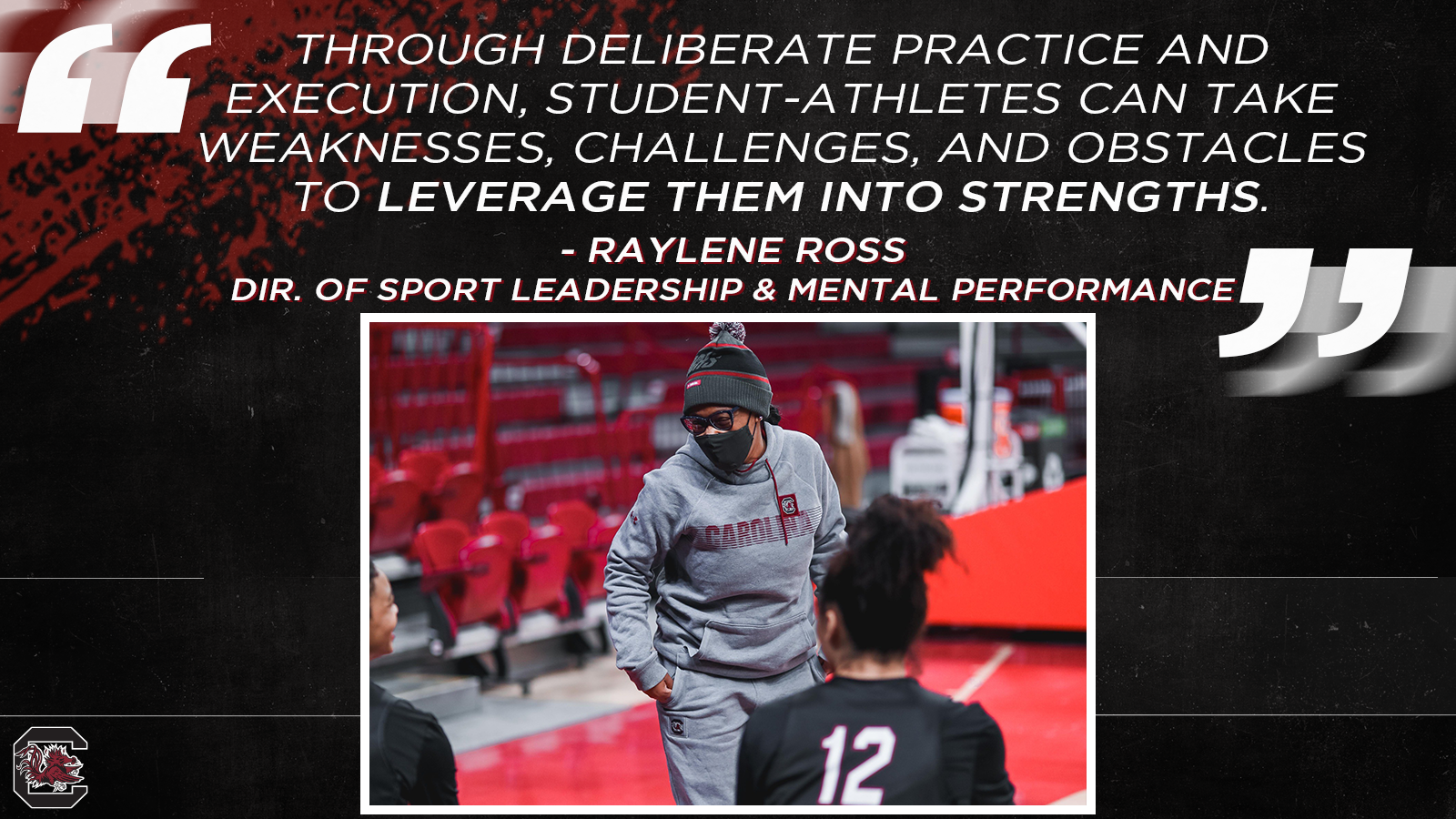
Active Listening a Key Component for Mental Performance
South Carolina Athletics takes pride in equipping its student-athletes with everything they need to perform in the arena, the classroom, and beyond. In addition to having their physical health taken care of, South Carolina student-athletes have plenty of resources for their mental well-being as the Gamecocks have access to a full complement of mental health and performance professionals, including Dr. Raylene Ross, who was recently hired as the Director of Sport Leadership and Mental Performance.
“Team culture matters. To support our sports, I develop programs on team culture and leadership for student-athletes and coaches,” Ross said. “We want our student-athletes to leverage their mental toughness to develop holistically: academically, athletically, and socially, while preparing for life beyond the University of South Carolina.”
Ross graduated from Swarthmore College in Pennsylvania in 2000 and later earned a master’s in psychological services from Springfield College, her Ph.D. in Developmental Foundations from South Carolina, and another master’s in clinical health counseling from Louisiana at Monroe. She has worked as a Health and Wellness Coach/Mental Performance Consultant in Columbia and previously served as a Master Resilience Trainer/Performance Expert at the United States Army Training Center at Fort Jackson.
“You have to be very active in listening to figure out which route we’re going to take.”
There is a difference in treating issues with mental health and mental performance in dealing with student-athletes.

“Some may need help with mental health, and some may need help with performance,” Ross said. “You have to be very active in listening to figure out which route we’re going to take. Mental health focuses on whether the student-athlete exhibits impaired social, occupational, or school functioning, ranging from very few symptoms to psychological disturbances such as anxiety, depression, sleep, substance use, trauma, and stress. If so, we must focus on mental health. If it’s normal psychological functioning with periods of unbalanced and occasional dips that hinder a student-athlete’s ability to combat challenges and struggles, it’s still mental health.
“We focus on mental performance when there is good to high level psychological functioning and the desire to achieve optimal performance. Mental performance is more than a reactive approach to problem-solving. Through deliberate practice and execution, student-athletes can take weaknesses, challenges, and obstacles to leverage them into strengths. This helps where student-athletes exhibit little to no disruption in their personal lives, use effective coping strategies but struggle to execute in their sport. Sometimes athletes come in, and they self-sabotage by allowing distractions to negatively impact how they perform at practice or in competition. They internalize negative self-talk, or struggle to regain focus after experiencing obstacles. That’s mental performance.”
Being a good listener is important for Ross in helping the student-athlete understand that setbacks or challenges are opportunities for growth and development.
“Since internal dialogue can affect our performance and our daily functioning, we have to listen actively,” Ross said. “Not listening to talk but listening to hear what they’re saying. Sometimes athletes think the problem that prompts them to seek help occurred recently. In most cases it’s been building up for a long time.”
Ross is another piece of the puzzle for South Carolina Athletics in collaborating with sports medicine, sport science, nutrition, and strength and conditioning staff to improve the performance of teams and individual student-athletes on and off the field.
.












